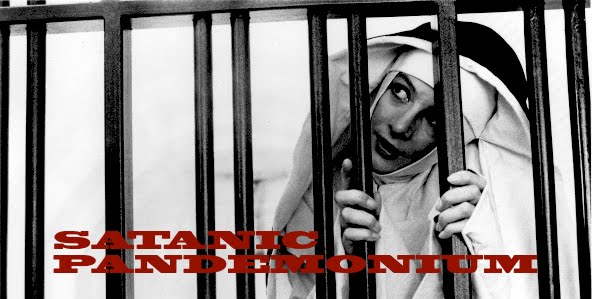Basil Dearden, 1970
Starring: Roger Moore, Hildegarde Neil, Kevork Malikyan, Thorley Walters
A respectable, middle class business man, Harold Pelham, has a strange episode where he sheds his normally reserved, repressed personality and drives maniacally down the highway and gets in an accident. He nearly dies and when doctors re-start his heart, they oddly hear two heart beats. Thinking it is just a technological malfunction, they send Pelham on his way to recover at home with his wife, Eve, and their two children. But Pelham’s life takes a turn for the weird. Friends claim to have seen him when he wasn’t around, there’s some kind of security leak at his office that points back to him, and soon an attractive woman he only glimpsed once tells him they are having an affair. Becoming increasingly paranoid, Pelham is desperate to get to the root of these strange and frustrating events, which are increasing every day.
Based on Anthony Armstrong’s novel The Strange Case of Mr. Pelham, this was director Basil Dearden’s final film and among Roger Moore’s first major starring roles. Though he rose to fame with television show The Saint and the world knows him as James Bond, his appearance in The Man Who Haunted Himself is largely ignored or forgotten. It’s a shame, because it’s a worthy performance in a mediocre, if entertaining film.
Moore plays against type as a rigidly straight-laced London businessman. His employees joke that his daily schedule and habits run like clockwork and his almost equally repressed wife is desperate for sex. Basil Dearden wisely follows Moore throughout the film and only offers glimpses of his nemesis towards the conclusion. Is he the victim of a menacing conspiracy theory? Or is he just losing his mind? As his neurosis intensifies, Dearden and Moore keep us guessing. Though it is fairly obvious that this is a doppelgänger tale, it’s never really clear which direction the film is going to go in until the conclusion.
Skip to the next paragraph if you’d like to avoid spoilers.
Though there are some obvious Dr. Jekyll and Mr. Hyde influences, the second Pelham actually doesn’t do anything very Hyde-like. He gets a better business deal for his company, though through slightly unethical means, has an affair and apparently treats his mistress very kindly, treats his wife well and works actively to improve their relationship, etc. He is simply more social, more aware of the needs of those around him, and a real devil on the pool table. I choose to see this as a joke on the restrained British nature of the first Pelham, which seeps into the world of the film itself.
There’s not an overabundance of action, but there is plenty of ‘70s style, some lovely shots of London, and an awkward pink tie that happens at the end of the film. It’s a shame that the script wasn’t up to Moore’s acting abilities, though he is nearly able to save the film and make it worth watching. The delightful Freddie Jones (Dune, The Elephant Man) is great as a kooky psychiatrist and Hildegard Neil (Antony and Cleopatra) is lovely as Pelham’s frustrated wife. Hammer horror regular and character actor Thorley Walters (Vampire Circus) also puts in a good appearance as a friend Pelham first believes has organized an elaborate practical joke.
Basil Dearden (Dead of Night) is careful to build tension and suspense and the fault here is entirely with the script. Filmed once before for Alfred Hitchcock Presents, this would really better serve a short film or television episode and the padding is clear. The tacked on side plots about Pelham’s relationship with his wife, his mistress, his colleagues, and business partners are all introduced, but none are fully developed.
There’s a strange obsession with Moore’s clothing, including scenes of him taking on and off his socks, a focus on his staid ties and suits, and a later vivid attempt to break free of his middle class chains. The second Pelham – gasp – wears a sweater occasionally instead of a suit and tie and even dons speedos in one scene. Racy.
Films about the double have been used to great effect in horror, including Louis Malle’s adaptation of Poe’s William Wilson, Hitchcock’s Shadow of a Doubt, Strangers on a Train, Vertigo, and many others. A blend of thriller and horror film, The Man Who Haunted Himself never quite goes far enough. There’s a brilliant shot where Moore confronts Moore, all while one of the two is reflected in a full length mirror and they circle around each other. It’s a clever scene and it’s a shame this kind of Hitchcockian technical pizzazz wasn’t used throughout.
If you’re a fan of Roger Moore and you haven’t seen this, you’ll definitely want to check it out. It’s available on DVD and apparently on a nice-looking Blu-ray in the U.K. One of the most hilarious moments involves Moore making a James Bond joke. While watching the film, I assumed this was just after Live and Let Die (1973); turns out it was three years before and his solid acting in The Man Who Haunted Himself contributed to his being chosen for the iconic Bond role. Moore has said this was his favorite role and he definitely gave a worthwhile performance.


No comments:
Post a Comment